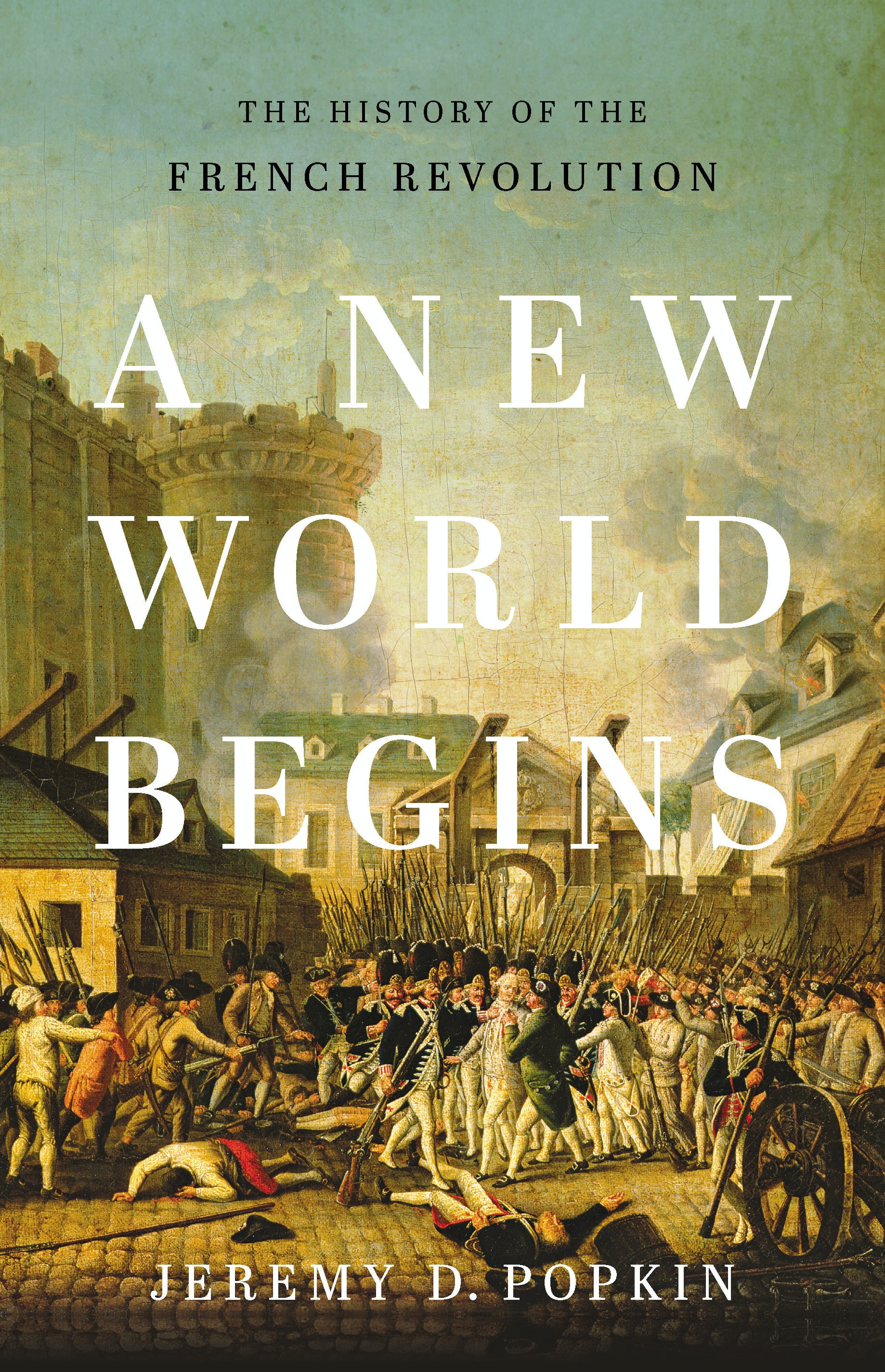"A New World Begins" and the meaning of the French Revolution

The French Revolution is simultaneously one of the most defining moments of the modern era as well as one of the most elusive. Its architecture and patterns set the stage for much of modern politics and economics, from the very concepts of “left wing” and “right wing” to standard weights and measures to the foundations of human rights that are still at the heart of Western liberalism.
Yet, the French Revolution is … involved. Convoluted. Inchoate. It both shocked the monarchy and destroyed that vestige of the past, but led to a sequence of emperors and rulers and republics on and off that continues to this day. A singular event, but just one in what in retrospect was a rapid gush of history.
There’s been a lot of new historical work on the subject, so I was excited to read Jeremy D. Popkin’s A New World Begins: The History of the French Revolution. French history is something that I have studied a bit for years, and the book has been billed as sort of a “most up-to-date” look at this pivotal event.
The book is adequate for its task. It covers the lead up and the context for the French economy and its foreign relations, walks through the major events, and heads to the other side. Of special note is the book’s deeper connections to the events in the French Caribbean colonies such as Saint-Domingue, where Toussaint Louverture led a slave revolt that eventually ousted the French and created the modern state of Haiti. Placing the Revolution in broader context makes for a more balanced story.
Yet, one can’t help but be overwhelmed in a book written like this at the sheer weight of the history that is going on here, or just how scrambled the politics were during the key moments of the revolution. If you think politics today is hard to glean from the ceaseless flood of tweets, Facebook posts, and news articles, there is nothing quite like the French Revolution. A cast of hundreds show up and dissipate, factions come and go, and the battle over the soul of France is won and lost in sometimes a matter of weeks or even hours.
Unfortunately, that level of chaos is just incomprehensible from a 30,000 foot lens like the one taken here. The book starts out introducing a single craftsman, but then we quickly lose him over the proceeding hundreds of pages, only for him to magically reappear for a paragraph or two and then evaporate back into the atmosphere. Key characters like Miraebeau and Condorcet and of course Robespierre have prominent roles and sketched biographical outlines, but it’s hard to square their motivations and mercurial natures with the this-then-that history presented here.
For better or worse, this is history as reference. Events transpire, dates are recorded (or re-recorded, as the Revolution constructs its own revolutionary calendar), people materialize and then die by the blade of the guillotine. There are microcosms, and then there are the larger demographic and macro factors — the widespread hunger, the deprived masses, a bloated state apparatus that has no financial core to stand on. If you know what you are seeking, you will find it here. If you are looking for a blueprint, that’s quite a bit more challenging to glean.
I am not always the biggest fan of narrative nonfiction, which often has the opposite problem — an obsession with minutia and placemaking at the expense of any understanding on how those details come together. But the reality is that without some sort of narrative or driving force, history just happens. And it shouldn’t just happen, since agency and contingency are key to understanding anything from what our pasts tell us.
A New World Begins is crisply written, direct, and linear. That may not be the highest praise for a work, but when it comes to an event this complicated, it isn’t damnation either. Coupled with other histories, or maybe political treatises like Reflections on the Revolution in France or maybe more biographical works on specific characters would provide the narrative power this subject deserves.